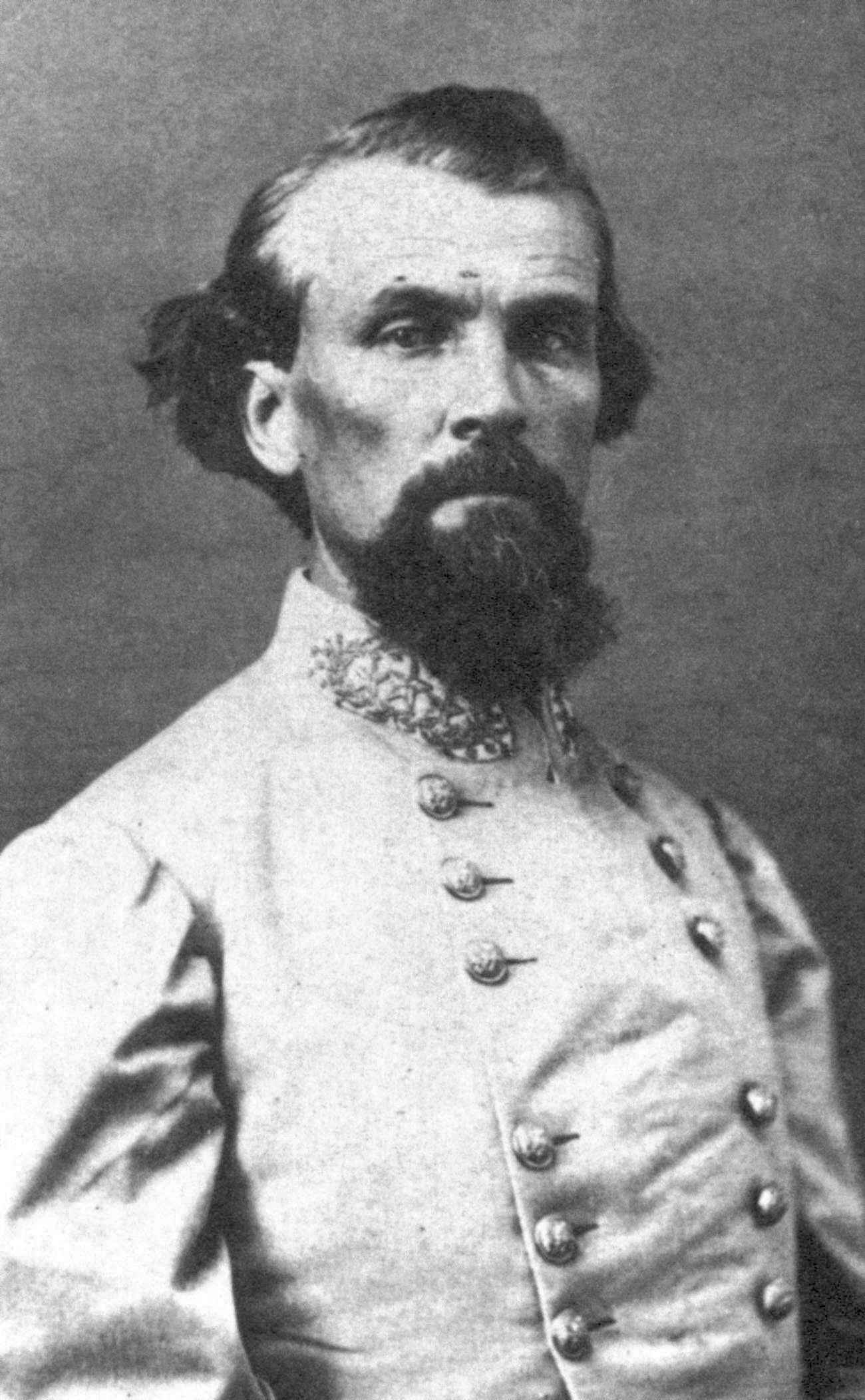1870s, Speech before the Pole-Bearers Association (1875)
Nathan Bedford Forrest: Frases em inglês
“Negro soldiers cannot cope with Southerners”
Regarding the Fort Pillow massacre, as quoted in Personal Memoirs, by U.S. Grant, (Library of America, 1990), p. 483.
Contexto: The river was dyed with the blood of the slaughtered for two hundred yards. The approximate loss was upward of five hundred killed, but few of the officers escaping. My loss was about twenty killed. It is hoped that these facts will demonstrate to the Northern people that Negro soldiers cannot cope with Southerners.
1870s, Letter to war veterans (1875)
“Men, you may all do as you damn please, but I'm a-goin' home.”
Forrest to Charles Clark, Governor of Mississippi and Isham G. Harris, former Governor of Tennessee, in response to the request that he keep fighting. As quoted in May I Quote You, General Forrest? by Randall Bedwell.
1860s
Said to his men at Shiloh, 1862. As quoted in May I Quote You, General Forrest? by Randall Bedwell.
1860s
Regarding Forrest's millitary genius, William T. Sherman w:The Life of General Nathan Bedford Forrest, by John Allan Wyeth, p.635.
1870s, Speech before the Pole-Bearers Association (1875)
As quoted in May I Quote You, General Forrest? by Randall Bedwell.
1860s
Forrest to his men, 1865. As quoted in May I Quote You, General Forrest? by Randall Bedwell.
1860s
1860s, Farewell address (1865)
1870s, Speech before the Pole-Bearers Association (1875)
To Captain John Morton, 1864. As quoted in May I Quote You, General Forrest? by Randall Bedwell.
1860s
1870s, Speech before the Pole-Bearers Association (1875)
“Preserve untarnished the reputation you have so nobly won.”
Part of Forrest's last address to his men, 1865. As quoted in May I Quote You, General Forrest? by Randall Bedwell.
1860s
1860s, Farewell address (1865)
Regarding black voting, as quoted in Report of the Joint Select Committee.
“War means fighting, and fighting means killing.”
As quoted in May I Quote You, General Forrest? by Randall Bedwell.
1860s
1860s, Farewell address (1865)
1870s, Letter to war veterans (1875)
“Every moment lost is worth the life of a thousand men.”
Said to Braxton Bragg at Chickamauga, September 18-20, 1863. As quoted in May I Quote You, General Forrest? by Randall Bedwell.
1860s
1870s, Speech before the Pole-Bearers Association (1875)
“Get there first with the most men.”
Reported by General Basil W. Duke and Richard Taylor
Often erroneously reported as "Git thar fustest with the most mostest." In The Quote Verifier : Who Said What, Where, and When (2006) by Ralph Keyes, p. 272, the phrase he used has also been reported to have been "I always make it a rule to get there first with the most men" and "I just took the short cut and got there first with the most men."
1860s
“I've got no respect for a young man who won't join the colors.”
As quoted in May I Quote You, General Forrest? by Randall Bedwell.
1860s
“This fight is against slavery; if we lose it, you will be made free.”
As quoted in Report of the Joint Select Committee.
At Athens, Alabama, 1864. As quoted in May I Quote You, General Forrest? by Randall Bedwell.
1860s
1870s, Speech before the Pole-Bearers Association (1875)
Said by Forrest, with saber drawn, to a young lieutenant who would not help in dousing flames on supply wagons set on fire by Union troops on their retreat to Memphis. As quoted in May I Quote You, General Forrest? by Randall Bedwell.
1860s
